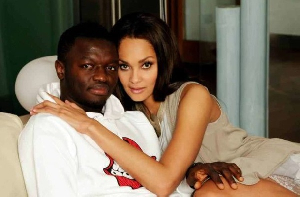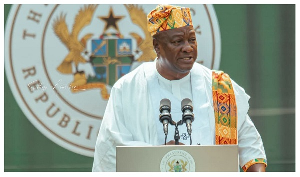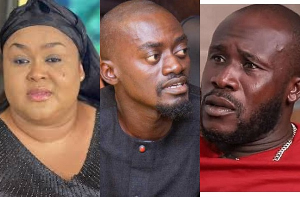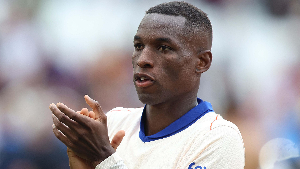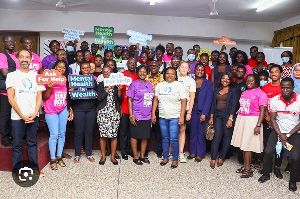The world needs no introduction when the issue of this deadly coronavirus (COVID-19) pandemic is mentioned. It has been exactly a year now since the World Health Organization (WHO) declared this disease a global pandemic.
Since then, there have been a lot of reforms and changes in human activities for one to survive this disease. Unfortunately, this virus has claimed over 2 million lives and has affected over 120 million people globally. In this article, I will talk about Ghana’s case, the progress we have made, and the shortfall since the outbreak of the pandemic exactly a year ago.
For the past year, the world has suffered massively as the coronavirus pandemic has forced people to change their way of life and living. The way and manner in which the world saw and did things have changed. This is so because for one to be safe and secure from this virus, one needed to adjust his or her way of life and this is what we have lived with for the past year.
Background of COVID-19
I do not want to bore you with a lot of talks about the genesis of this whole pandemic but at least a little of it will suffice. On 17th December 2019, the first case of COVID-19 was recorded in Wuhan, a province in China.
On 31st December 2019, the first coronavirus-related death case was confirmed in Wuhan. This later came to be known as COVID-19. Since its emergence, the virus has caused the world to make some spontaneous radical changes and adjustments. The World Health Organization declared the outbreak a Public Health Emergency of International concern in January 2020.
The World Health Organization led by its Director-General Dr Tedros Adhanom Ghebreyesus on March 11, 2020, declared the novel coronavirus outbreak a global pandemic. Since that announcement by the Director-General, more than 120 million cases have been confirmed with over 2.5 million deaths. This makes it one of the deadliest pandemics in human history.
Ghana’s Situation
Ghana, like other countries, was not left off the hook with regard to this COVID-19 pandemic. The pandemic has hit the country hard and has exposed in many forms, its sectors. The pandemic has shrunk the economy and retard the growth the country was envisaged to have gained by end of the year 2020. A lot of things came to a standstill and many business opportunities became stillborn.
On Thursday 13th March 2020, the Ministry of Health, led by the Health Minister Mr. Kwaku Agyeman-Manu announced the confirmed two cases of the virus in the country. These 2 people had brought the virus with them from Norway and Turkey, respectively. After the announcement of the 2 cases, the country has witnessed a lot of changes.
Even before Ghana recorded its first 2 cases, however, president Nana Addo Dankwa Akufo-Addo had addressed the country on 12 March 2020 about the measures that the government had taken to combat the virus in case there is a reported case. Just within 24 hours of this announcement and assurance from him, the country recorded its first 2 cases.
After the confirmation of these 2 cases, the president in his second address to the nation announced some draconian measures which were taken to help restrict the further spread of the virus. There was the closure of schools from all levels of education, a ban on public gatherings- conferences, churches, mosques, all sporting activities, funerals, weddings among others which exceeded 25 people in attendance.
These measures and directives were alien to the citizens’ normal way of life. To suddenly adjust our way of life and the way things were done was very difficult and problematic but on the other side when one saw the rising death cases being recorded in Europe and America, one had to be cautious and adhere to these measures. One other thing Ghanaians found difficult to obey was the wearing of nose-masks. This was very new to many Ghanaians, and perhaps, the only people who were used to this nose-mask and face shield were our health professionals but for the rest of the population, it was a strange thing. The suffocation alone could make one lose focus.
3 weeks partial lockdown
Aside from these bans on social gatherings, the president in one of his addresses announced a partial lockdown in some part of Accra and some part of greater Kumasi. This was perhaps one of the most difficult and most challenging parts of the measures which were introduced. Putting a ban on mass gathering and topping it up with a restriction of human movement was difficult for the country to comply with. The government made some provisions to provide food and other items to the vulnerable in these affected areas. This lockdown spanned about 3 weeks. The day the announcement was made by the president with regard to the lifting of the partial lockdown, the whole country especially those who were directly affected went into jubilation.
Battling COVID-19 in 2020 in Ghana was not an easy task. 2020 was an election year, and there were a lot of questions around whether Ghana was going to hold its general elections on December 7 and whether electorates would line up in long queues to vote for their Members of Parliament and a president.
COVID-19 and Voter Registration
Even before the general election, there was the issue of a new voter's registration exercise which was to be conducted by the Electoral Commission (EC). This announcement faced stiff opposition from some opposition political parties and Civil Society Organizations (CSOs). They claimed that it was not safe for the EC to conduct such exercise during the pandemic.
Their cries and pleads fell on deaf ears. On the other side, the EC mounted a strong defense as to why the country needed for the first time a clean and transparent voter register that would remove all sorts of suspicion from political actors whenever an election is held.
The Electoral Commission had outlined some measures in place to ensure a smooth running of the exercise. From late June 2020 to early August 2020- within some 44 days, the registration was completed. At the end of the registration, there were more than 17 million registered voters.
There were some gains regarding the fight against COVID-19. The country started seeing a decline in the number of active cases. Many people who were infected by the virus after some days tested negative and this drastically reduced the active cases that we had at the time.
Effect of the Virus
The negative effect of this pandemic cannot all be enumerated in this article. The country has been hit badly by this deadly pandemic. The challenge it has brought on the health system cannot be left out. Generally, the health system in Africa is very fragile and weak and can hardly contain congestion. The issue of no bed syndrome is a common menace in this country. COVID-19 came as a special case and for that matter needed some special treatment and management, and this escalated our troubles.
Unemployment is already a pandemic in the country but with the outbreak of the COVID-19 disease, the issue of unemployment became worse. Many informal sector workers suffered the most as most of these workers were asked to stay home. Other workers who worked based on contracts too were asked to stay behind.
Those who worked at various hotels, restaurants, drinking spots, discos and other places also lost their jobs. Even for those who had full employment, some lost their jobs because their services were not needed at the time. Others had to reduce their working hours and have their salary cut to make them still relevant in their jobs. The outbreak has created a horror image of unemployment. It has compounded the unemployment issue and very soon this could become a national crisis. This issue if not tackled immediately may cause havoc in the not long-distance future.
The pandemic has also retarded development in various sectors of the country. Many projects which had kicked-started or were about to be, were all halted. Many road construction projects are in the mud. Tourists could not come into the country because during the peak of the pandemic, all borders were closed and most of these sites became white elephant. The revenue the country generates from that sector is huge and with it not operating, the level of development has further slowed down.
Leadership
When it comes to the management and handling of COVID-19, the government has done a marvelous job. If a country will win a war or a battle, most often it depends on the resilience of its leaders. When you compare Ghana's cases to other parts of the world you would realize that the country has performed better. This is not to say I am being insensitive to those who have succumbed to the virus, but this is a statement of fact.
The phrase “Fellow Ghanaians” and “This too Shall Pass” are some of the popular quotes citizens are familiar with about the president’s updates. A year into the pandemic, the president has addressed the country more than 24 times and in each of these addresses, he presented hope rather than fear and panic. These updates were mostly measures that the COVID-19 team had taken to stop the spread of the virus.
It was not surprising that this progress was recognized by some international bodies. This was evident as seen in a research survey conducted by Yacai Research Institute in China. According to the report released on September 22, 2020, Ghana was third place in countries that had well-managed COVID-19.
Law-abiding Citizens
We may say the government has done well in terms of the management and handling of the situation, but we should not also lose focus on its citizens. I strongly believe that we have made this progress largely because we have responsible citizens who are law-abiding. The feat would not have been achieved had the citizens been restive. There should be some commendation on the part of the citizens as well. Ghanaians were willing to comply and made a lot of sacrifices during these difficult times.
The Shortfall during the election campaign.
Despite the successes the country made, we failed at a certain point in time. During the peak of the electioneering campaigns in 2020, our leaders forgot that we were battling a pandemic. They brazenly disobeyed the safety protocols. There were large gatherings that greeted their rallies and tours. Their supporters met them without face shields or nose masks. There was zero social distancing.
Our active case started rising again during the Christmas festivities. We were told that people going out to have fun without observing the safety protocols during the festive period was the reason for which the cases went up again. For me, this was the greatest joke and lie anybody could give. Was there any social distance during the elections? Were the protocols being observed during the elections? Even after the declaration of the election results, did any of those who went out to jubilate obey any of these protocols?
One of the problems we have as a country is the dishonesty and disingenuousness of our leaders who are readily available to preach virtue but quick to practice vice. We could have brought this pandemic under control had we not engaged in those rigorous political campaigns with no respect and adherence to the COVID-19 protocols.
The current situation
Since the outbreak of the pandemic, Ghana has recorded over 87,000 cases with over 83,000 recoveries and more than 680 people have succumbed to the virus. Our daily infection rate has also reduced as compared to some 2 months ago with the recovery rate moving faster.
The arrival of AstraZeneca Vaccine
It was a great day for Ghana and the rest of the world as the country was privileged to receive the first consignment of the COVID-19 vaccine on 24th February 2021. The 600,000 COVAX doses sent to Ghana are part of an initial tranche of deliveries of the AstraZeneca/ Oxford vaccine licensed to the Serum Institute of India. These are part of the initiatives by COVAX, WHO, UNICEF, and GAVI to send vaccines to low- and middle-income countries like Ghana and other African countries.
The president and his wife on 1st March 2021 were the first people in the country to take this AstraZeneca vaccine followed by the Vice president Dr Bawumia and his wife. Since then, about 300,000 people have taken their first jab in Ghana. The government has a rollout plan to vaccinate about 20 million Ghanaian people by the end of 2021.
I hope this becomes a reality.
There were some initial fears and conspiracy theories about the vaccine. Many people expressed fear as to its effectiveness. The president needed to take his first shot on live television. Since then, many influential and opinion leaders have done same to send a signal to the rest of the country about how important it is for us to take the vaccine when the time comes.
In conclusion, as a fan of Oliver Twist, I want more progress and measures which will see the country bounce back to its normal ways- a situation where after the pandemic, the country would be better, and we would have learnt a lot of lessons.
We should not be complacent with the numerous progress we have made and lose our guards. If we do so we will have ourselves to blame and would have done a fruitless job. We should not lose focus. The disease is still here irrespective of the coming of the vaccine. Let us continue to hold our momentum and obey all the safety protocols and measures which will see us win this battle. This battle continues to be the Lord’s.
Ghana must work again; Ghana will work again. YOUNG POSITIVIST, a concerned citizen of Ghana.
Opinions of Tuesday, 16 March 2021
Columnist: Sampson Boamah







